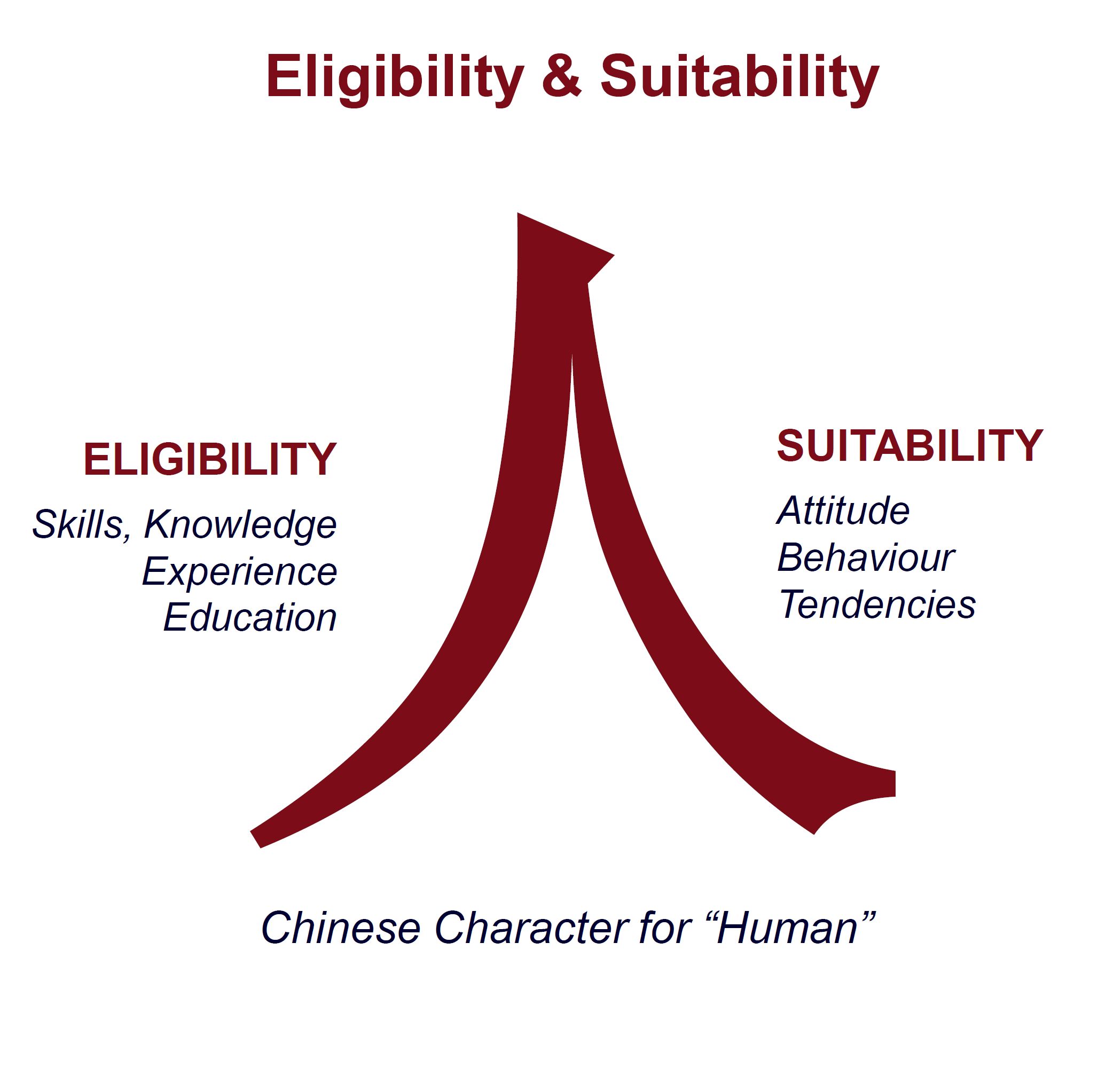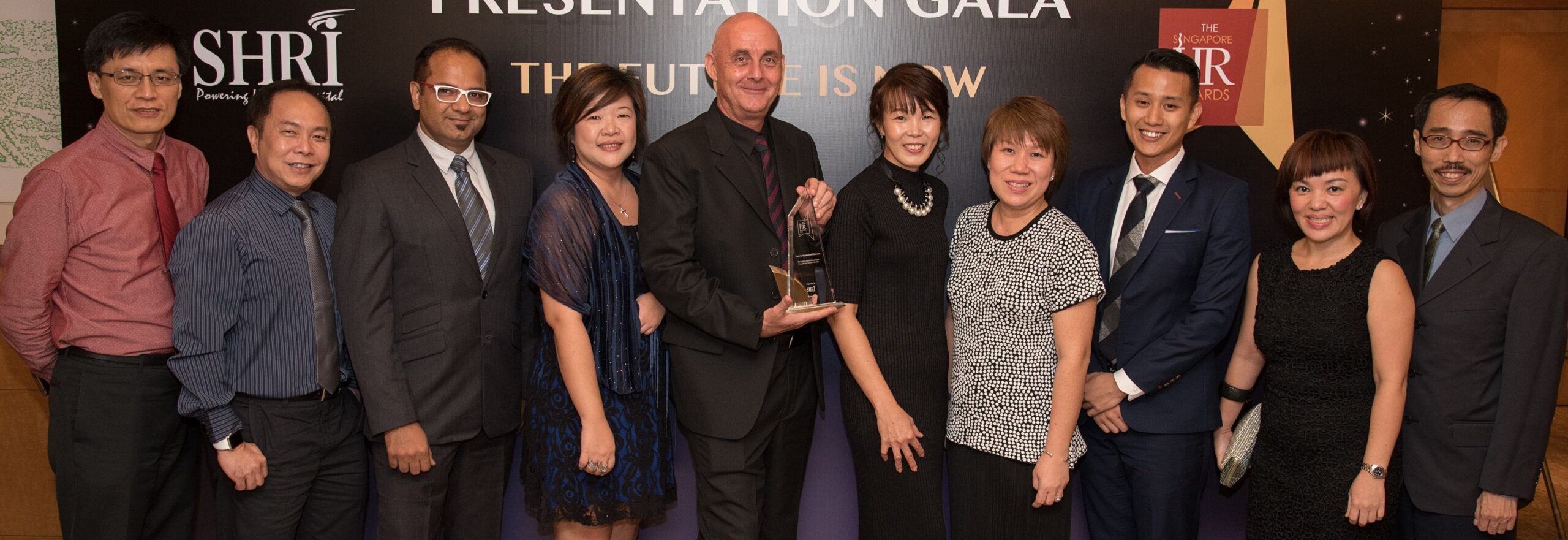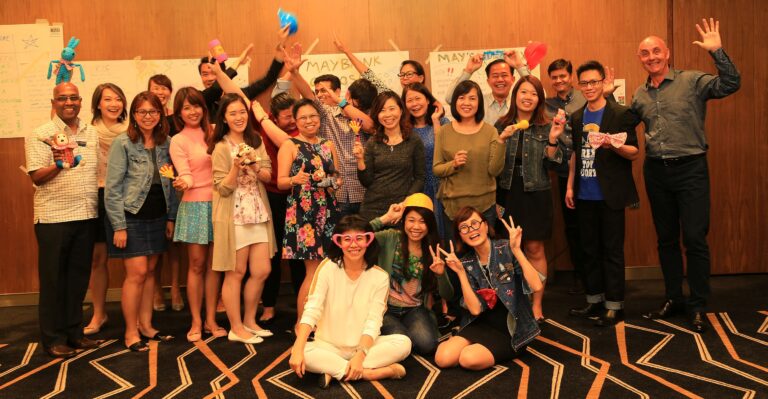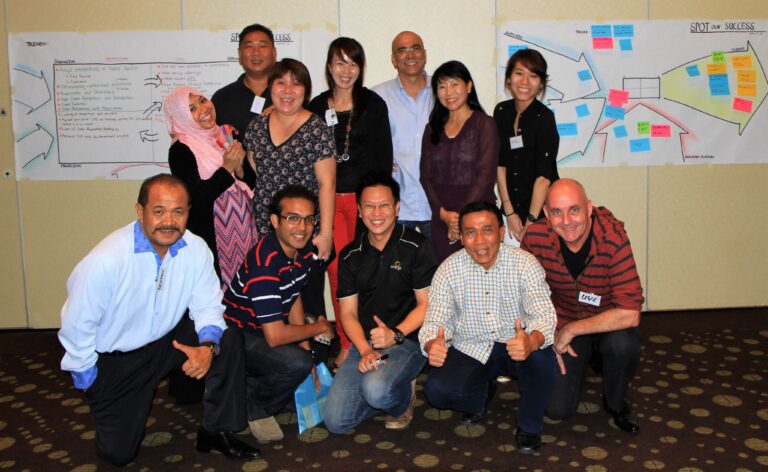We are working on a very tight project schedule. Most of our staff members work late almost every day. Are you prepared to work long hours?
What is cost control? Are you good at it?
We often hear these leading questions during job interviews – a common mistake hiring mangers make. As a result we end up having a wrong person on the job. We getting frustrated, and worst, we have wasted money and time on recruitment.
Competency-based interviews can help.
Eligibility + Suitability = Good Fit
Most recruiting managers find it relatively easy to identify the characteristics that a candidate will need to possess to make them eligible for a job.
Typically, Eligibility has to do with professional or academic qualifications, relevant experience or specific job-related skills and knowledge. These can be verified by reference to certificates. This includes diplomas and records in the case of qualifications.
Or, it is done fairly straightforward by tests in the case of technical skills.
In many situations, however, an excellent performer is someone who has not only technical skills but is also suitable for the job. Suitability is much more about the way people will go about doing the job once they are on it.
Suitability tends to be about people’s attitudes and behavioural tendencies. They are the factors defined as Value-Based Competencies. It is typically much more difficult to get a clear idea of how suitable people will be before they are appointed.
Hence, suitability is one aspect we often overlook. As depicted by the Chinese word “Ren” illustrated above, where the two strokes supporting each other signify that “knowledge and skills” have to be complemented by “Attitudes”, a person with relevant knowledge and skills but inappropriate attitude will not be able to contribute as much to his corporate and the community.
Moreover, the higher the skills and knowledge of a person, the greater damage he can do to the organisation if his attitude is flawed.
Competency-Based Interviewing Technique
The art of finding the right person (Star) is to use a structured approach. Therefore, we identify the relevant past behaviour to allow forming a judgement on likely future behaviour. Such approach is known as Competency-Based Interview (CBI).
A skilful interviewer is a detective who tries to find examples that are evidence of desired behaviour from a person’s past experiences. To achieve this, some preparation is needed:
- Define job requirements that are essential for a successful job holder – purpose of the role, line of reporting, responsibilities and competencies.
- Decide on the competencies you are looking for
- Develop competency-based interview questions using STAR approach (Figure 2).
Focus on the three key competencies that the role requires. In order to allow a sufficient conversation you should plan for 10 to 15 minutes per competency.
Hence, through using CBI, the candidate’s fitness, his suitability for the job is measured by projecting his past behaviour on the required competencies. This usually gives the candidate the benefit of talking about real experience – if he has. And it gives the interviewer the advantage of getting into a much more fruitful discussion using an important measuring scale, the required competencies and their necessary behaviours.
Conclusion
In conclusion, identifying knowledge and skill set of a candidate is rather easy. However, finding the right mind-set is a more difficult task. Using a set of value and competency-based interview questions enables managers to spot the STAR, the person who does not only bring the required aptitude but also “fits” in the organisation.









